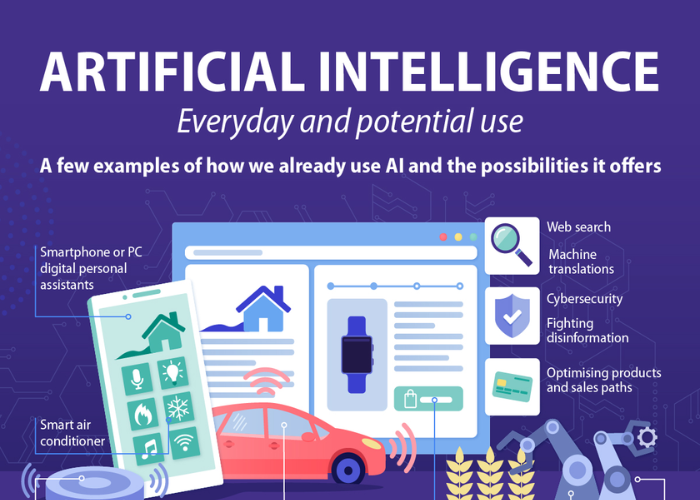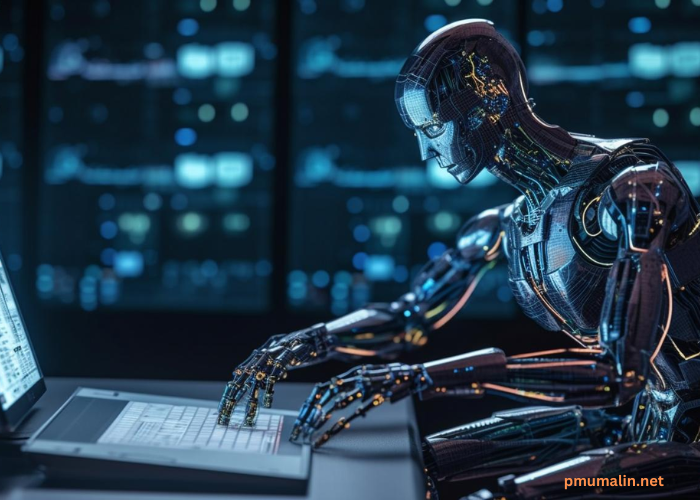Artificial Intelligence (AI) is one of the most talked about and debated topics in the world today. It has been described as the “future of technology” and a “game-changer” for the way humans interact and do business with machines. AI has the potential to revolutionize how we think, work, and live, and is already making significant and lasting impacts in many different industries. Understanding what AI is and how it works is essential to capitalize on its potential. In this article, we’ll explore the definition of AI, its properties, applications in different industries, and the potential benefits and risks of using it in our everyday lives.
Understanding Artificial Intelligence and its Properties
Artificial intelligence is a broad term that can encompass a variety of technologies, ranging from simple algorithms to sophisticated machine learning systems. At its core, AI is a set of algorithms or strategies that enable machines to “think” and act as if they were humans, in order to complete specific tasks. AI systems can be designed to learn and improve over time, and can be used to solve complex problems and automate mundane tasks.
The properties of AI systems can vary widely, depending on their purpose. Some AI systems are designed to work with large amounts of data, such as in the field of artificial neural networks, while others are designed to be more general-purpose and able to interact with human users. AI systems can also be designed for specific tasks, such as natural language processing, image recognition, or object identification.
Artificial Intelligence in Different Industries
AI has become increasingly important in many different industries, ranging from healthcare to finance. In healthcare, AI is being used to automate certain aspects of medical diagnostics, such as detecting cancerous tumors or identifying rare diseases. In finance, AI is being used to automate complex financial transactions, such as automated trading systems or fraud detection systems. AI is also being used to improve customer experience, such as in customer service chatbots or virtual assistants.
AI is also being used in the retail industry to automate inventory management, and in the automotive industry to automate the production and assembly of vehicles. AI is also being used in the media and entertainment industry to automate content creation and distribution. Finally, AI is being used in the energy industry to automate the production and distribution of renewable energy.
Benefits of Using Artificial Intelligence in Everyday Life
The use of AI in everyday life has the potential to drastically improve efficiency and productivity. By automating mundane tasks, AI can free up humans to focus on more creative and meaningful work. AI can also be used to optimize decision making, by using data to identify patterns, correlations, and trends that humans may not be able to identify. AI can also help to identify areas of improvement, such as in the healthcare industry, where AI can be used to improve outcomes and reduce costs.
AI can also be used to improve customer experience, by providing personalized recommendations and tailored experiences. Finally, AI can help to improve safety, by automating dangerous tasks and providing early warnings of potential hazards.
Potential Risks of Artificial Intelligence
Despite the potential benefits of AI, there are also potential risks to consider. One of the most significant potential risks is the possibility of AI systems making decisions or taking actions that are not in the best interests of humans. For example, in the healthcare industry, AI systems could be used to make decisions about medical treatments without considering the potential risks or ethical considerations.
Additionally, AI systems could be used to manipulate data or mislead humans, such as in the case of “deepfakes” or AI-generated fake news. Finally, the use of AI could lead to job displacement, as AI systems are increasingly used to automate certain tasks that were previously done by humans.
Conclusion
AI has the potential to revolutionize how humans think, work, and live. However, it is important to understand the potential risks of using AI and to ensure that it is used responsibly. By understanding the properties of AI, its applications in different industries, and the potential benefits and risks of using it in our everyday lives, we can capitalize on the potential of AI while minimizing its potential risks.






